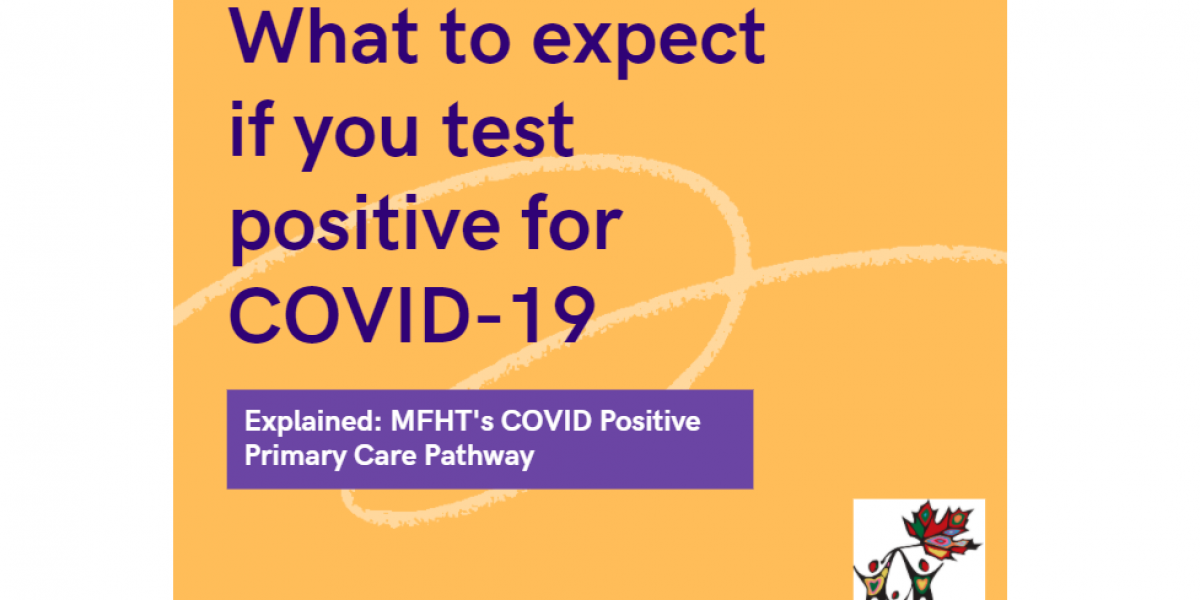Testing positive for COVID-19 can be a difficult experience for many. It may lead to not only worrying about your own health, but to be concerned about the impact it could have on your loved ones and community members as well. The Marathon Family Health Team (MFHT) wants to assure our patients and community members that we have a strategy in place to help support those who test positive for COVID-19 in our communities, which includes working with public health authorities.
Below you will find a basic outline of the steps that will be taken to care for and manage each individual who tests positive for COVID-19 locally. Please note that not all individuals will go through each step. Steps 3 and 4 are only for those who experience moderate-to-severe symptoms and who may require hospitalization.
Step 1: Being notified of your positive COVID-19 test results
First, you will receive confirmation of your positive test result by a public health authority. During your phone call with public health, you will be asked to provide a detailed history of your symptoms and a list of your close contacts so they can begin the contact tracing process. Public health will give you clear instructions on your next steps, including how to self-isolate and for how long.
A healthcare provider from the MFHT may also call you to provide you with your test result and to ensure that you feel well supported.
Step 2: Regular phone check-ups
After being diagnosed with COVID-19, know that you will be monitored closely by both public health and your primary care team.
A public health authority will call you every day to check-in on you and to ensure that you are doing well and that you are following self-isolation advice. The daily check-ins will stop once your case is considered to be resolved by public health.
In addition to the daily check-in calls from public health, a healthcare provider from the MFHT will also be contacting you regularly. How often you will get phone calls from MFHT will depend on your risk level, which will be determined by your family physician or nurse practitioner. These phone calls are intended to help you monitor and manage your symptoms at home.
Step 3: For those experiencing worsening symptoms
If you experience worsening symptoms and become worried that you are getting sicker, your healthcare provider or public health nurse will refer you to your family physician or nurse practitioner. In this case, you will be booked a same-day urgent care phone appointment to ensure that you are treated in a timely manner.
If you have concerns or become worried about your symptoms outside of regular clinic hours (9am to 5pm, Monday to Friday), you should call the hospital in order to receive the care you need. When calling the hospital, please identify yourself as being COVID positive. You will then be provided with specific instructions on how to enter the hospital.
Once you arrive to the hospital, you will be assessed by a nurse and physician.
Step 4: For those requiring hospitalization
If you require hospitalization for your COVID illness you will be admitted to our local hospital, but then transferred to the Thunder Bay Regional Hospital. People with COVID-19 can become very seriously ill quickly, so it is important that the hospital that you are hospitalized in has an Intensive Care Unit (ICU) in case your condition deteriorates.
The Thunder Bay Regional Hospital is the COVID-19 Treatment Centre for our district. They are prepared to assist our hospital with the transport and care of patients who require their services in this pandemic.
Arrangements can also be made for those who wish to stay in community to receive palliative care.
Your healthcare team is here to support you
We hope that this brief outline provides you with a better understanding of the system we have in place to care for those who test positive for COVID-19. Although we have a fragile healthcare system that can easily become overwhelmed, we are committed to supporting the patients who test positive for COVID-19, their families and all the populations we serve to the best of our ability.



